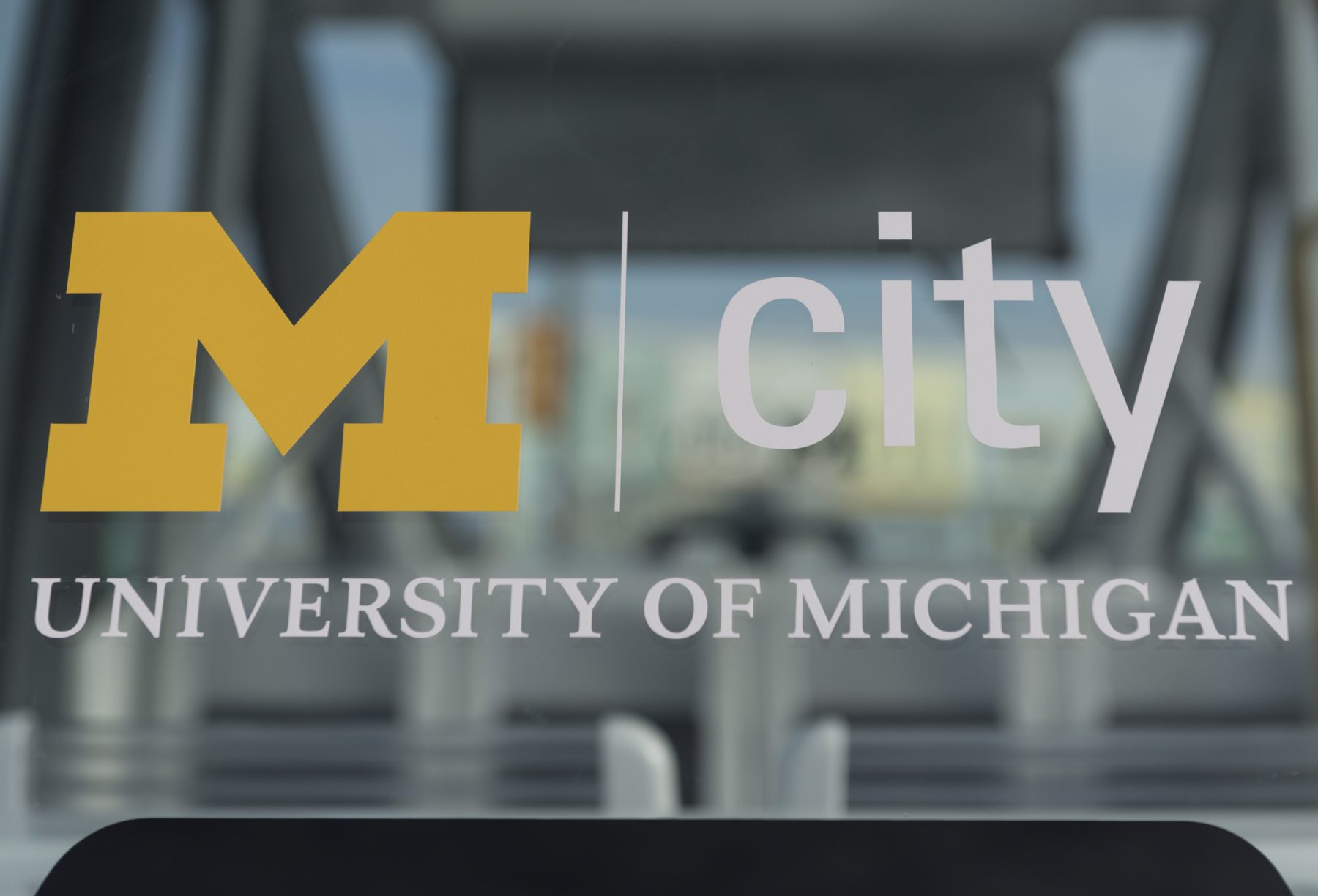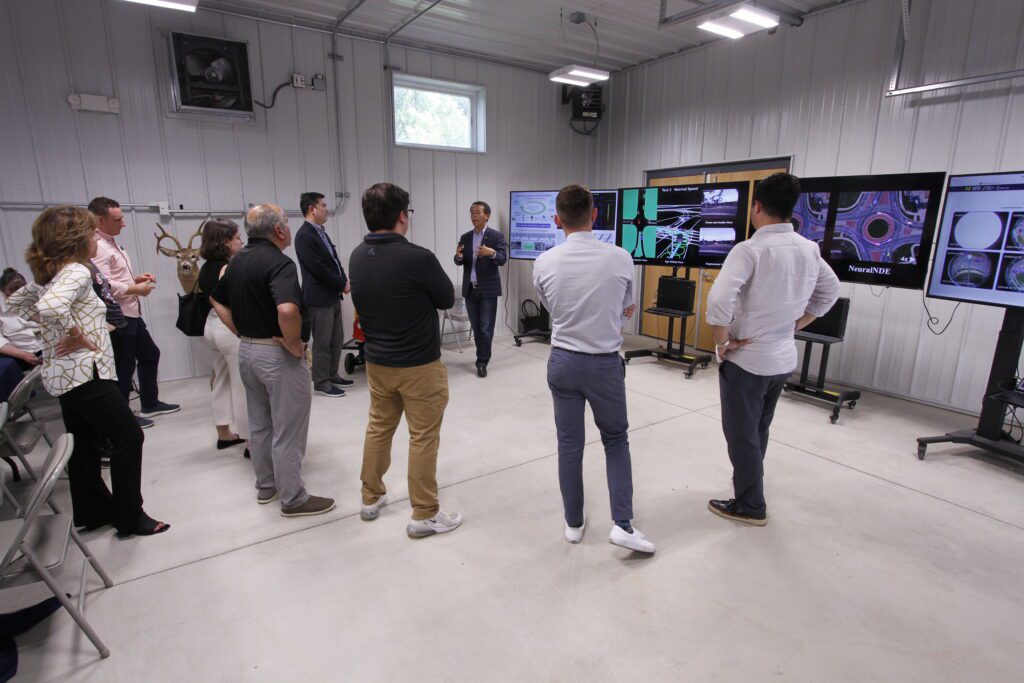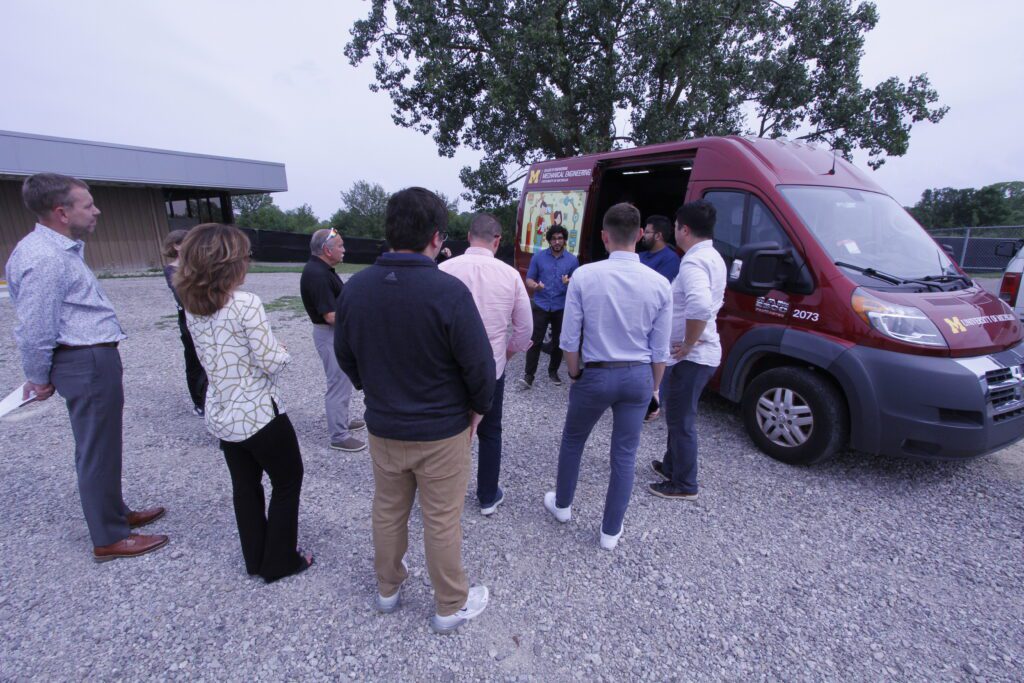Congressional Staffers from the State of Michigan gain insight on transportation research during U-M visit

The federally-funded research aligns with the U.S. Department of Transportation’s priorities including equity and electrification
ANN ARBOR—On August 9th, representatives from Mcity, the U-M Transportation Research Institute (UMTRI), and the Center for Connected and Automated Transportation (CCAT) met with Congressional staffers from the State of Michigan to highlight federally-funded transportation research projects. The visit was part of a larger tour of the University Research Corridor, an alliance of Michigan’s three leading research institutions: Michigan State University, the University of Michigan, and Wayne State University.
The staffers represent Michigan lawmakers including Senator Gary Peters and Debbie Stabenow and Representatives Elissa Slotkin, Debbie Dingell, and Haley Stevens, all of whom serve on subcommittees centered around infrastructure, economic growth, transportation, and more. Greg McGuire, Managing Director of Mcity, welcomed the staffers to the University of Michigan and gave introductions for Dr. Henry Liu, Eric Wingfield, and Debby Bezzina.
Dr. Liu, Director of Mcity and CCAT and Professor of Civil & Environmental Engineering at the University of Michigan, provided an overview of Mcity, a public-private partnership aimed at advancing transportation safety, sustainability, equity, and accessibility, and CCAT, the U.S. Department of Transportation’s Region 5 University Transportation Center. Dr. Liu also discussed significant workforce development efforts including the Perot Jain TechLab at Mcity program, which pairs undergraduate and graduate students with emerging transportation startups. Enrollment for the Winter 2023 term of the Perot Jain TechLab program is now open.
“The opportunity to meet with Michigan Congressional staffers allowed Mcity to reinforce the importance of federal funding and the benefits that it provides the country, including Mcity 2.0 which will provide remote access to researchers across the country”
Dr Henry Liu, Director, Mcity
Eric Wingfield, External Engagement Manager of UMTRI, spoke about the history of the Institute which was founded in 1965 with a $10M grant from Ford, General Motors, and the Automobile Manufacturers Association to address the urgent problems of highway safety. For more than 50 years, UMTRI has utilized a multidisciplinary approach of five groups with expertise in engineering systems, biosciences, human factors, behavioral sciences, and more. In addition, UMTRI provides experiential learning to more than 100 students each year leveraging several programs and scholarships. The deadline for the Patricia F. Waller Scholarship, which funds those who elect a thesis, dissertation, or special project that addresses the human aspect of transportation policy or practice, is November 30th.

Debby Bezzina, Managing Director of CCAT and Senior Program Manager of UMTRI urged for a connected vehicle mandate that could reduce the number of unimpaired crashes in the United States by 80%. Bezzina argued that projects such as the Smart Intersections Project and Ann Arbor Connected Environment create a living laboratory for researchers to effectively test new applications which would increase safety for all road users. According to the National Highway Transportation Safety Administration (NHTSA), 42,915 people died in motor vehicle traffic crashes in 2021, a 10.5% increase from the year prior.
Jim Lollar, Test Facilities Manager for Mcity, led the congressional staffers on a tour of the Test Facility, making stops to meet with researchers focused on transportation equity and to ride in an electric vehicle that charges inductively. Dr. Kathleen D. Klinich, Associate Research Scientist in the Biosciences Group at UMTRI, demonstrated a number of wheelchair-related research projects including the Automated Wheelchair Tiedown Occupant Restraint System (AWTORS) and the Universal Docking Interface Geometry (UDIG) which provides increase safety and independence for wheelchair users in automated vehicles (AVs).

Next, Nishant Jalgaonkar and Daniel Sousa Schulman, Ph.D. candidates in the mechanical engineering department, displayed the capabilities of the PREACT system which preemptively actuates a vehicle’s seat to reduce motion sickness in AVs. Passed in November of 2021, the Bipartisan Infrastructure Deal promises to address equity for all users of the transportation system. Finally, the staffers rode in the Ellie, an electric van that charges while it drives thanks to inductive technology powered by Electreon. In July of 2023, Representative Haley Stevens introduced a bill to expand wireless electrical vehicle (EV) charging programs at the federal level. Mcity’s partnership with Electreon serves as a test pilot for these deployments and expands its research portfolio.
Story and photos by Calvin Tuttle, Communication Director of the Center for Connected and Automated Transportation